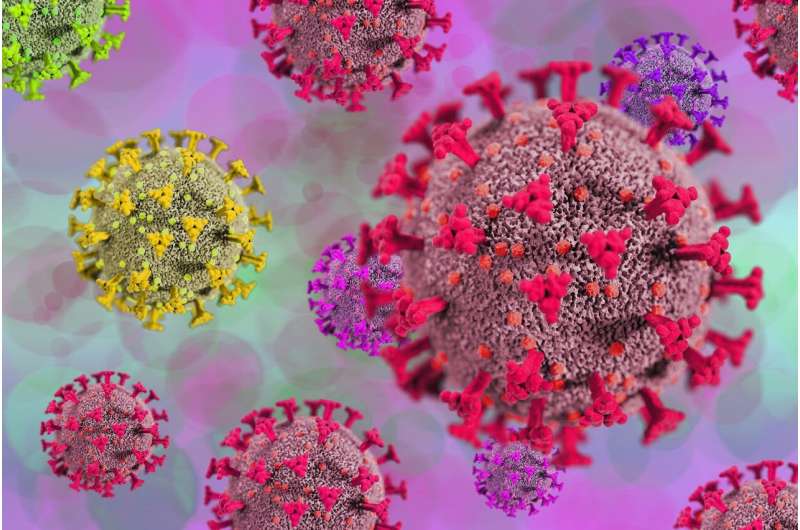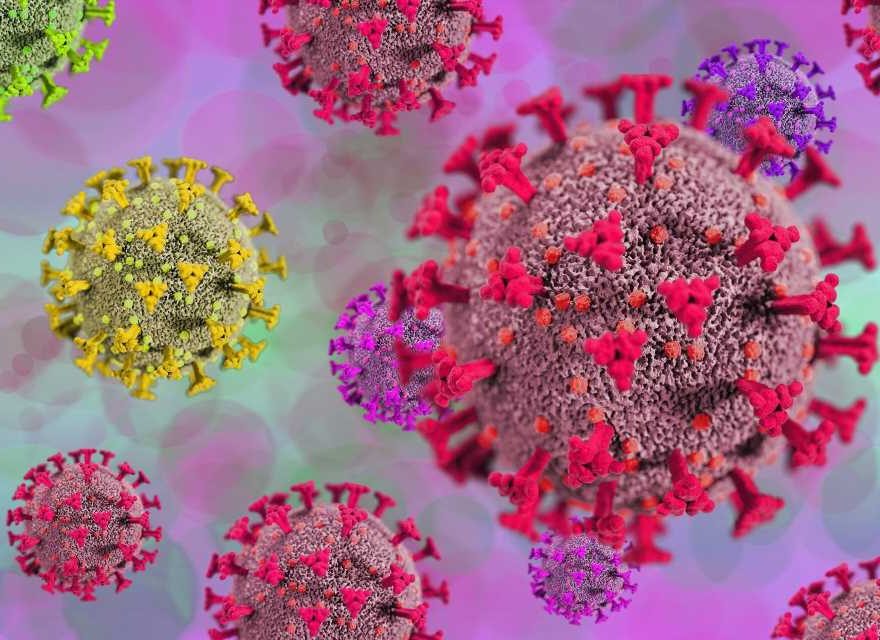
SARS-CoV-2 variants of concern and the biological sex of patients affect the efficacy of molnupiravir, the first orally available drug approved for outpatient use against COVID-19, according to a new study led by researchers in the Center for Translational Antiviral Research in the Institute for Biomedical Sciences at Georgia State University.
SARS-CoV-2, the virus that causes COVID-19, has triggered recurring infection waves worldwide because of the limited longevity of vaccine-induced immunity, hesitancy of various populations to vaccinate and variants of concern (e.g., alpha, beta, gamma, delta and omicron) that are increasingly contagious or aren’t sensitive to vaccines. Omicron has quickly replaced delta as the dominant circulating strain after first appearing in November 2021.
While oral antivirals such as molnupiravir promise to improve disease management, the efficacy and potency of molnupiravir against variants of concern are either questioned or unknown. Though omicron appears to be milder than previous variants, there’s an urgent need for therapeutics to improve disease management because of record-high daily infection rates and elevated hospitalization numbers.
The study published in the journal Nature Communications tested molnupiravir against SARS-CoV-2 variants of concern in cultured cells, human airway epithelium organoids, ferrets and a dwarf hamster model of severe COVID-19-like lung injury. The analysis found molnupiravir equally inhibited variants of concern in cells and organoids, and treatment reduced shedding and prevented transmission in ferrets.
In addition, the capacity of SARS-CoV-2 to cause disease in dwarf hamsters was dependent on the variant of concern and was highest for the delta, gamma and omicron variants. All hamsters treated with molnupiravir survived, showing reduction in lung virus load from one order of magnitude for delta to four orders of magnitude for gamma. The effect of treatment varied in individual hamsters infected with omicron, and viral load reduction was significant in males but not females.
“We established in this manuscript a novel SARS-CoV-2 animal model that gives high viral load of omicron, which is currently the variant of concern. None of the other models have done that,” said Richard Plemper, senior author of the study, director of the Center for Translational Antiviral Research and Distinguished University Professor in the Institute for Biomedical Sciences at Georgia State. “We show that dwarf hamsters provide a robust experimental system to explore degrees of pathogenicity of different SARS-CoV-2 variants of concern. Unexpectedly, molnupiravir efficacy against omicron was variable between individual dwarf hamsters. Biological sex of the animals emerged as a correlate for therapeutic benefit of molnupiravir use against omicron, with treated males faring better overall than females. By contrast, biological sex had no effect on treatment benefit when dwarf hamsters were infected with gamma or delta, which matched human trial data reported for these variants of concern.”
Scientists have lacked an efficacy model that mirrors the acute lung injury of life-threatening COVID-19 and a relevant experimental platform to test the effect of molnupiravir on mitigating lung damage caused by different variants of concern. This discovery could enable researchers to explore the impact of treatment on disease outcome.
Source: Read Full Article
